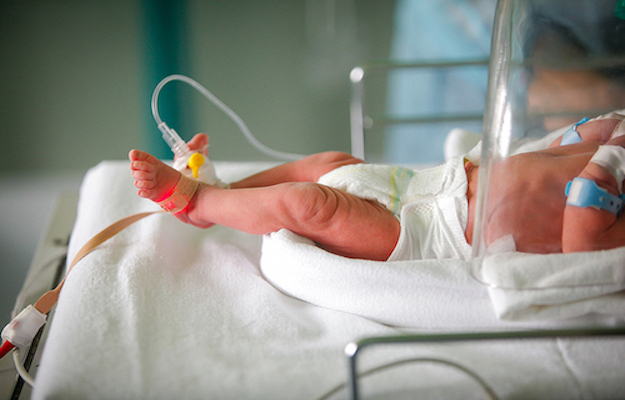A Case for Universal Newborn Screening
India
healthysoch
Mumbai/New Delhi, May 29, 2025:

A four-day-old baby, born outside Mumbai and presenting with alarmingly high bilirubin levels (24 mg/dL, significantly above the normal <2 mg/dL), was admitted to Wockhardt Hospitals, Mira Road, triggering immediate concern among the medical team. High bilirubin in newborns can lead to kernicterus, a condition causing long-term brain damage and disability.
Adding to the urgency was the infant’s family history: a previous sibling had tragically passed away at one month of age due to severe, uncontrollable bleeding from the umbilicus, later revealed to be linked to liver dysfunction. This history heightened the suspicion that the current infant’s severe jaundice on day four, following a seemingly normal discharge from another hospital, was not a typical case of newborn jaundice.
Dr. Nitu Mundhra, Consultant Neonatologist and Pediatrician at Wockhardt Hospitals, Mira Road, explained, “Given the concerning history and the unusually high bilirubin so early in life, we immediately suspected a more serious underlying issue than physiological jaundice. The baby’s liver function tests were also disproportionately deranged compared to their clinical appearance, further raising our alarm.”
Despite initial investigations to find the cause of Liver failure yielding negative results, Dr. Mundhra and her team maintained a high index of suspicion for liver pathology. Surgical causes were ruled out, and repeat testing was conducted. By the seventh day of the baby’s life, a diagnosis was finally reached: Galactosemia.
Galactosemia is a rare inherited metabolic disorder where the body cannot properly metabolize galactose, a sugar found in lactose, the primary carbohydrate in breast milk and most infant formulas. In healthy individuals, galactose is converted into glucose, which the body uses for energy. However, babies with galactosemia lack the necessary enzyme for this conversion, leading to a buildup of galactose and its toxic byproducts in the body.
“The challenge with galactosemia in newborns is that their primary source of nutrition is milk, which contains lactose,” Dr. Mundhra elaborated. “This baby was being fed milk, inadvertently leading to the worsening of their condition and the dangerously high bilirubin levels.”
The diagnosis highlighted the critical importance of timely intervention. Had the condition remained undiagnosed, the infant’s liver failure would have progressed, and the high bilirubin would have likely caused irreversible brain damage and sometimes death also. In a swift response, Dr. Mundhra and her team immediately stopped all milk feeds and switched the baby to a lactose-free soya milk formula.
The impact of this simple change was remarkable. Within two days of the dietary modification, the baby’s bilirubin levels, which had stubbornly remained elevated despite other treatments, began to decline significantly. The total bilirubin dropped from 15-16 mg/dL to 8 mg/dL, and the direct bilirubin decreased from 3.5 mg/dL to 2 mg/dL by the end of 1 week all liver function tests were normalized.
As the genetic test confirmed the diagnosis of Galactosemia, this case powerfully illustrates the life-saving potential of newborn metabolic screening. In such cases, the importance of newborn screening becomes evident—just two drops of blood can detect severe conditions like this. Early detection could spare the patient from undergoing numerous investigations, spending days in the ICU, and facing the risk of serious complications.
Dr. Mundhra believes that the previous sibling’s tragic death might also have been attributable to undiagnosed Galactosemia, although this cannot be confirmed retrospectively.
At Wockhardt Hospitals, Mira Road, a comprehensive newborn screening panel is routinely offered to all newborns, including screening for red-eye reflex (to detect eye abnormalities), hearing screening, critical congenital heart disease (CCHD) screening, and metabolic screening for disorders like thyroid abnormalities, adrenal issues, Galactosemia, Phenylketonuria (PKU), and Hemoglobinopathies.
“While newborn screening is not yet mandatory nationwide in India, it is an indispensable tool for early detection of potentially life-threatening conditions,” Dr. Mundhra stated. “For a cost of approximately 1500 rupees for the metabolic panel, we can identify conditions affecting 1 in 300-400 newborns, making a profound difference in their lives and the well-being of their families. For parents, it’s not a statistic; it’s their one precious child.”
Without the timely diagnosis and intervention in this case, Dr. Mundhra believes the baby might have required a liver transplant and faced a future with significant neurological impairment. The simple act of changing the baby’s formula has averted a potential tragedy, underscoring the critical need for increased awareness and implementation of universal newborn screening in India.







